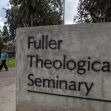While allowing a chemist the right to pursue a claim against the Navy for violation of his civil rights, the Ninth Circuit said another part of his claim, based on the Navy’s retaliation for his refusal to join the Mormon church, would stay dismissed. The circuit court did not see an adequate link between his failure to join the Church of Latter-day Saints (the Mormon church) and the alleged discriminatory treatment to which he was subjected.
Plaintiff-Appellant William Albro sued Richard V. Spencer, Secretary of the Navy, alleging it discriminated against him because of his “non-affiliation” with the Mormon church. He also said the Navy retaliated against him after he reported civil rights violations to his superiors. Albro was seeking to have his suspension removed from his record and was also seeking attorney’s fees and some non-economic damages to be determined at trial.
In a memorandum opinion issued July 16, a three-judge panel comprised of Circuit Judges Daniel Aaron Bress and Patrick J. Bumatay, as well as District Court Judge Douglas L. Rayes of the district of Arizona, sitting by designation, reversed the dismissal of the discriminatory treatment claim but affirmed the civil rights violation claim.
Albro’s suit was based on Title VII of the Civil Rights Act of 1964. The Ninth Circuit opinion opened with an affirmation of his proper pleading that met three of the criteria for proving discriminatory treatment under the 2004 precedent established by Peterson v. Hewlett-Packard Co. It said that Albro was a member of a protected class, was qualified for his position with the Navy, and showed he had experienced an adverse employment action.
He did not, however, meet the fourth part of the requirement. He did not show that “similarly situated individuals outside his protected class were treated more favorably.” The first three criteria were not disputed. But the fourth one was and provided a basis for the dismissal of that part of Albro’s complaint.
Appellant Albro’s lawsuit stemmed from extended interactions with his former colleague, and later supervisor, Ephraim Washburn, a high priest in the Mormon church, who “continually attempted to recruit him” to join, starting in 2006, when they began working together at the China Lake research facility, operated by the Navy. While Washburn was successful in getting Albro’s wife to join the Church, Albro himself never did and his wife later left the church as well. In 2012, Washburn became Albro’s direct supervisor, which Albro claims led to “a series of hostile actions” against him. He lost his security clearance, was given a seven-day suspension, was removed from his laboratory and equipment, and was reassigned to other employment.
Albro said that he “was a valued employee,” but Washburn’s “influence and direction” led to an investigation of his conduct on the job by the Navy’s Human Resources (HR) personnel. At oral argument on June 21, 2021, Albro’s attorney said that his suspension and reassignment took place because all the investigators and decision-makers acted “under the direction of Washburn.” The opinion memorandum concluded that Albro provided “enough facts” to state a plausible claim that he suffered discrimination.”
The Ninth Circuit panel, however, did not find that Albro provided enough facts to support his retaliation claim. Citing Freitag v. Ayers, a 2006 precedent, the judges explained the requirements for alleging a retaliation claim. Albro was involved in protected activity and had suffered an adverse employment action. However, he did not meet the important third part of the test that required “a causal link between the protected activity and the adverse action.”
His attorney said that he satisfied the protected activity requirement when he complained to a “human resource manager.” His complaint explained that Washburn should not have been his supervisor because of Washburn’s extensive history of trying to recruit him to join Washburn’s church and because Washburn had baptized Albro’s wife. He further stated that members of the Mormon Church under Washburn’s command were “treated better” than he. Albro also documented his formal complaints to the Equal Employment Opportunity Commission. (EEOC.) However, critically, he failed to allege that either Washburn or the exact managers who had suspended and reassigned him “even knew” of his protected activity in filing a complaint.
During oral argument On June 21, the justices heard arguments about what supervisors knew and when they knew it. Some of the justices said the supposed links were “threadbare.” The Navy’s attorney also argued that the long timeline between failed Mormon church recruitment activities and the alleged retaliatory actions that began in 2013 and escalated after reports were made to HR, made the retaliation claim implausible. Albro’s attorney argued that the details could and should be added during discovery when the complaints would be changed from circumstantial allegations to specific ones.
The opinion concluded, “Albro has not plausibly alleged that his suspension or reassignment were the result” of his reports to The Navy’s HR or the EEOC. His retaliation complaint was dismissed, but his discriminatory treatment complaint was remanded.






